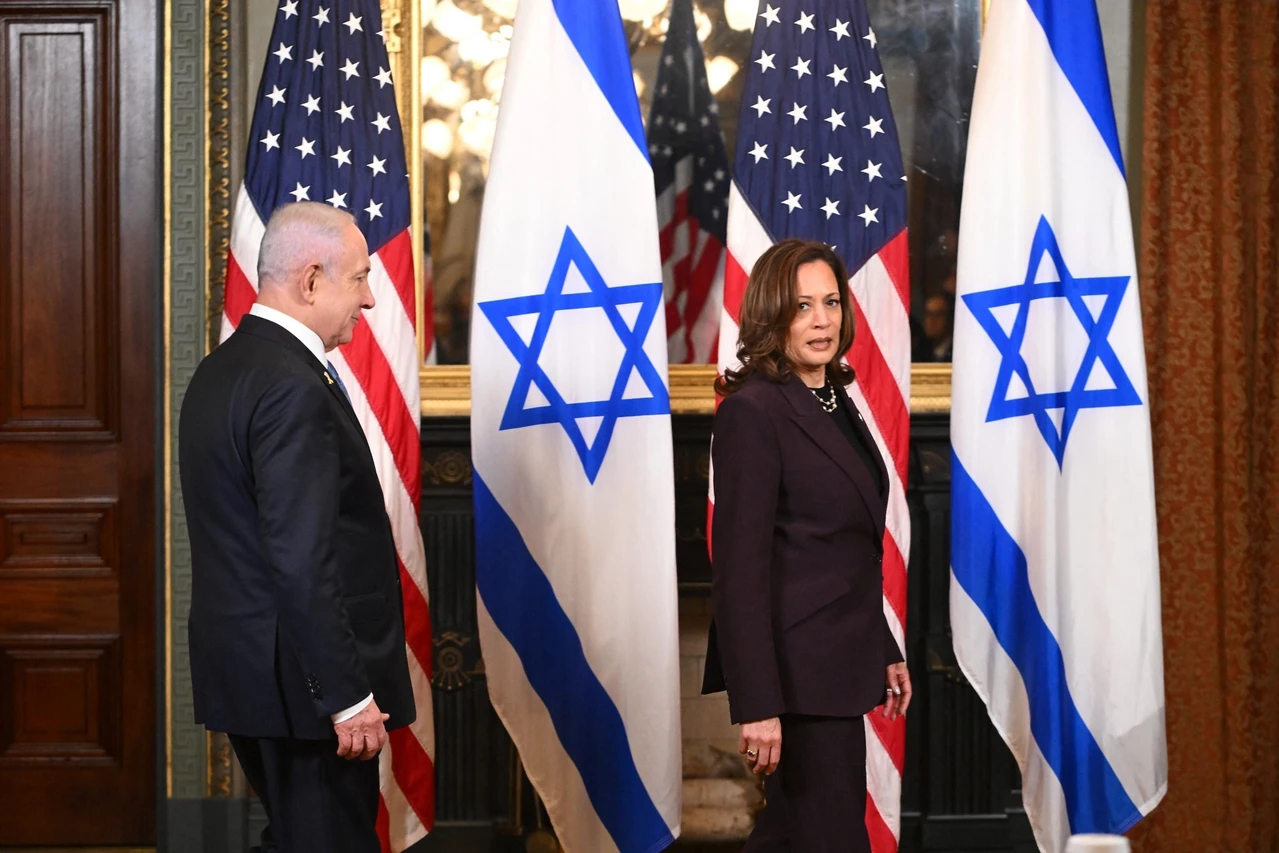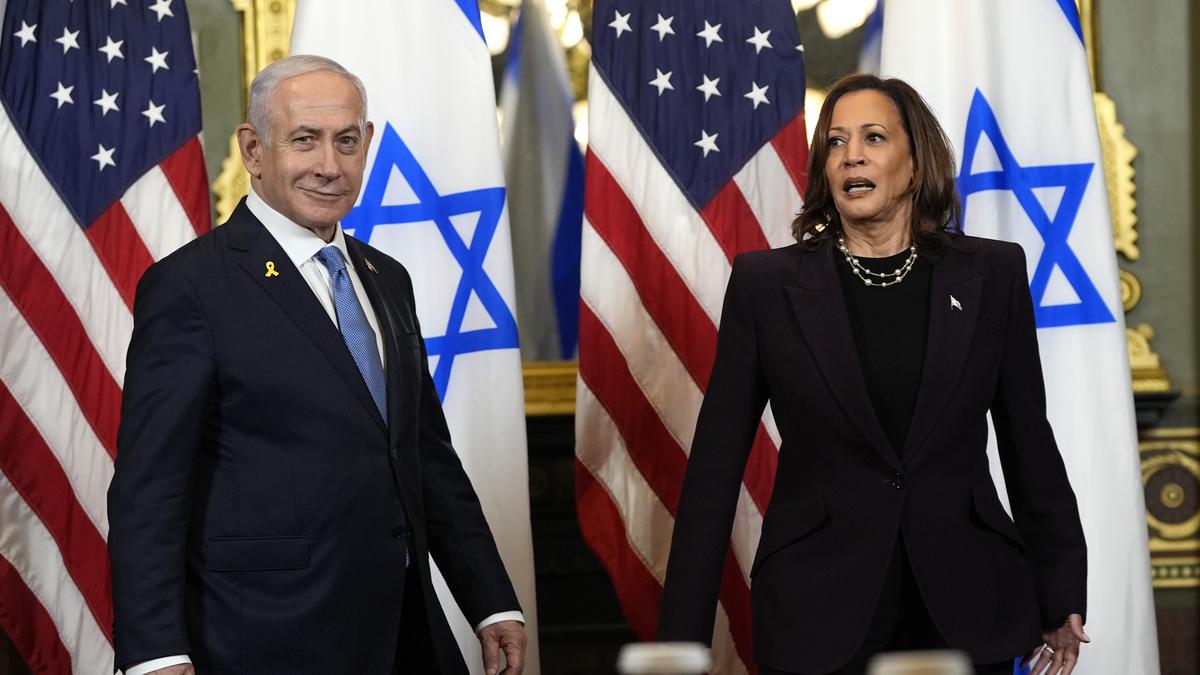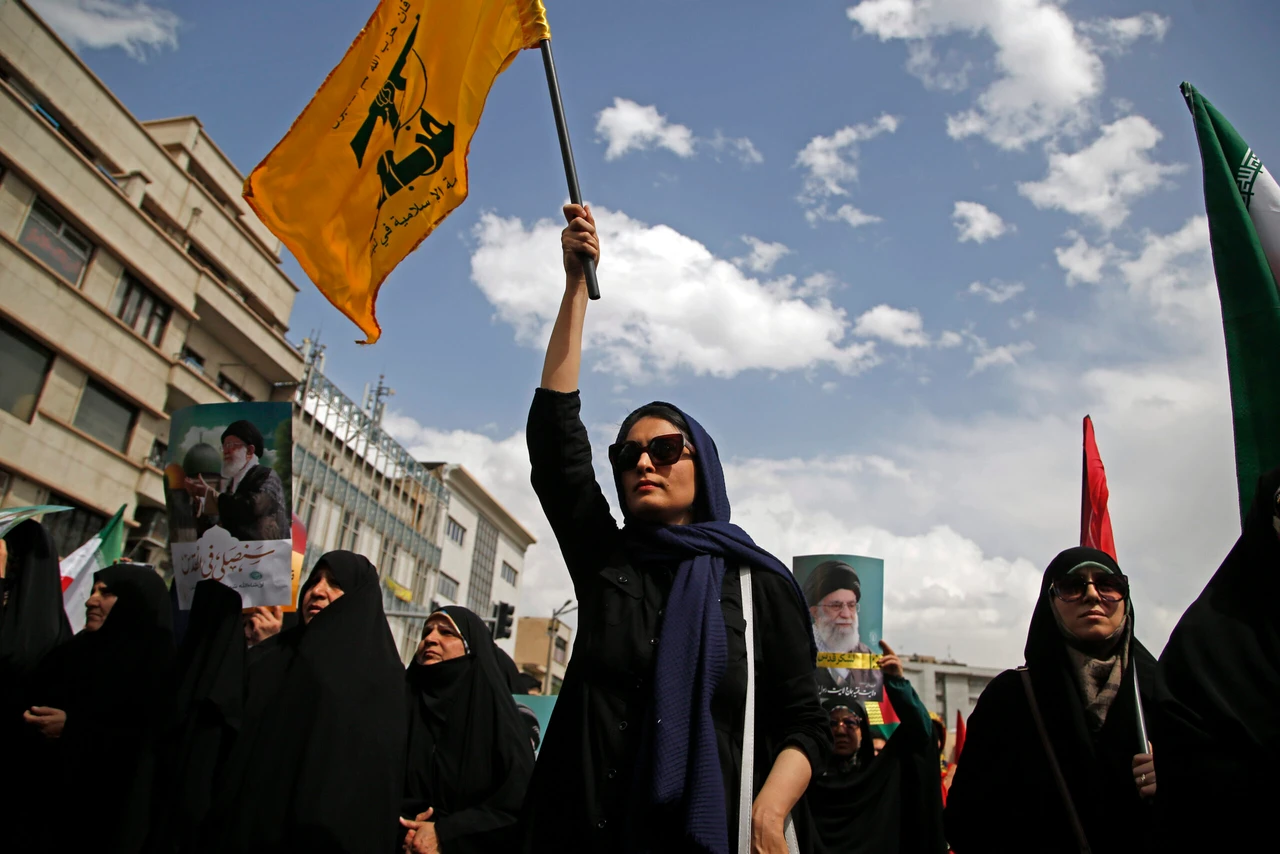Harris avoids direct response on Netanyahu, stresses US-Israel alliance
 US Vice President Kamala Harris, right, and Prime Minister Benjamin Netanyahu arrive for a meeting in the vice president's ceremonial office at the Eisenhower Executive Office Building in Washington, DC, on July 25, 2024. (Roberto Schmidt/AFP)
US Vice President Kamala Harris, right, and Prime Minister Benjamin Netanyahu arrive for a meeting in the vice president's ceremonial office at the Eisenhower Executive Office Building in Washington, DC, on July 25, 2024. (Roberto Schmidt/AFP)
U.S. Vice President Kamala Harris provided a nuanced answer when asked if the United States considers Israeli Prime Minister Benjamin Netanyahu “a real close ally,” instead focusing on the broader relationship between the American and Israeli people.
Her comments came during an interview with CBS’ Bill Whitaker on “60 Minutes,” set to air Monday, marking one year since Hamas’ attack on Israel.
Harris emphasizes US-Israel alliance
When pressed on the U.S. relationship with Netanyahu, Harris responded, “I think, with all due respect, the better question is: do we have an important alliance between the American people and the Israeli people? And the answer to that question is yes.”
Harris’ response underscores the administration’s focus on the strategic and longstanding ties between the two nations while sidestepping a direct assessment of Netanyahu’s leadership.

US aid and ongoing diplomacy
During the interview, Whitaker highlighted the significant U.S. military aid provided to Israel and questioned Netanyahu’s apparent deviation from U.S. policy calls, particularly regarding a ceasefire and restraint in Lebanon.
Harris defended the aid, stating it allows Israel to defend itself against missile threats, adding, “When we think about the threat that Hamas, Hezbollah presents – Iran – I think that it is, without any question, our imperative to do what we can to allow Israel to defend itself against those kinds of attacks.”
Harris also emphasized the U.S. diplomatic efforts in pushing for humanitarian aid, an end to the conflict, and a hostage release deal, stressing that the U.S. is “not going to stop in terms of putting that pressure on Israel and in the region.”
Netanyahu’s reluctance on cease-fire
Whitaker noted Netanyahu’s hesitation to agree to a cease-fire or halt operations in Lebanon despite U.S. pressure. Harris responded that diplomatic efforts have led to some movement by Israel in the region, driven in part by U.S. advocacy.



